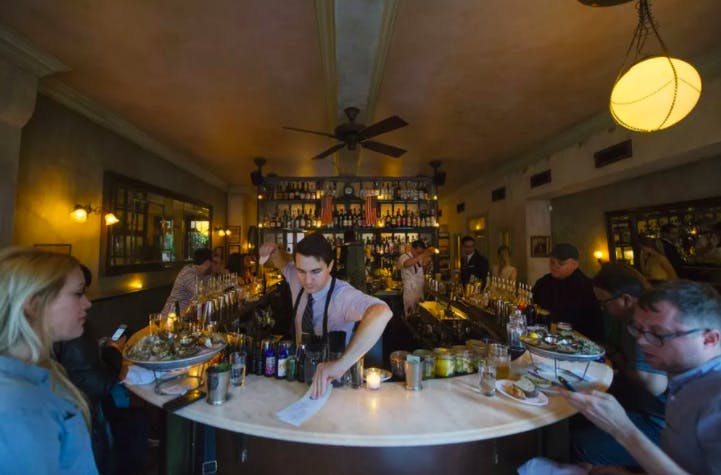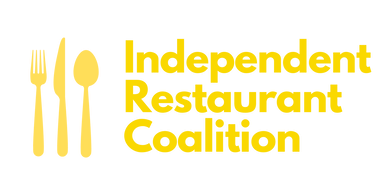July 8 – Independent Restaurants Demand SBA Release Information About Restaurant Revitalization Fund and Call on Congress to Refill the Relief Program

FOR IMMEDIATE RELEASE
July 8, 2021
CONTACT:
Jeff Solnet
jeff@precisionstrategies.com
Independent Restaurants Demand SBA Release Information About Restaurant Revitalization Fund and Call on Congress to Refill the Relief Program
Over 278,000 Restaurants and Bars Submitted Applications to Federal Grant Program; Only 101,004 Received Funding
Demand for Relief Exceeds Allocated Funds by Over $43 Billion
***Watch the Press Conference Here***
WASHINGTON D.C. – Independent restaurant operators waiting on federal relief called for the government to release more information about the recently closed Restaurant Revitalization Fund (RRF) and pleaded with Congress to refill the program. The Independent Restaurant Coalition also revealed a Freedom of Information Act (FOIA) request demanding that the Small Business Administration (SBA) release select information about the RRF. This follows the SBA announcing the exhaustion of funds in the RRF, leaving over 177,000 restaurants and bars in need of relief and on the brink of permanent closure.
The IRC request for information comes after thousands of restaurants and bars owned by women, socially or economically disadvantaged individuals, and Veterans, had their grant awards rescinded by the Biden administration following lawsuits in Texas and Tennessee that ordered the SBA to cease honoring the 21 day priority period for marginalized groups.
“We need to know what the real need is throughout the country to ensure every restaurant that still needs help can get it,” said Erika Polmar, Executive Director, Independent Restaurant Coalition. “It is now well documented that women and people of color had difficulty accessing PPP loans, which was a problem in the restaurants industry where more than half of businesses are owned by women and more than a third by people of color. Any government relief program must be designed to bring relief where it is needed most and that’s why we’re taking action. We are fighting to ensure all restaurants who need help can get it. Congress must refill the Restaurant Revitalization Fund as quickly and as fairly as possible.”
On Tuesday, as part of the ongoing legal disputes surrounding the priority period, the SBA filed a cross motion to dismiss a complaint filed in the Northern District of Georgia alleging that the priority period on the basis that it unconstitutionally discriminates on the basis of race and sex. As part of this motion, the SBA argued “applications from both priority and non priority applicants exceeded Congress’s allocation of funds to the RRF.”
Over 122,000 RRF applicants came from women, Veterans and socially economically disadvantaged businesses. About half of all restaurants in America are owned or co-owned by women. Women-owned businesses received 12-18% fewer loans than the estimated makeup of women-owned businesses nationwide. While more 60% of all chefs are people of color, an Associated Press analysis of PPP loans by ZIP code found that “thousands of minority-owned small businesses” were among the last to receive loans during the first two rounds of funding
“I have been open for 13 years and never have I been so close to the point of closing,” said Amanda Cohen, IRC Co-Founder and owner of Dirt Candy in New York, NY who has not received an RRF grant. ”A year and a half into this pandemic, and I am broken. Before the pandemic, we were an incredibly busy destination restaurant. During the pandemic, we were lucky if we saw any guests at all. The only thing that will sustain us is financial aid from the government....It is imperative that Congress refill the fund so that my business and thousands of other businesses like mine can continue to operate.”
Recently, Reps. Earl Blumenauer (D-OR-3) and Brian Fitzpatrick (R-PA-1) and Sens. Roger Wicker (R-MS) and Kyrsten Sinema (D-AZ) introduced the Restaurant Revitalization Fund Replenishment Act in both chambers of Congress, which provides $60 billion in additional funding for the RRF. This legislation is gaining rapid bipartisan support as 181 members of the House of Representatives have come out in support of the bill and 13 members of the Senate.
The Independent Restaurant Coalition continues to provide resources for members of the local restaurant and bar community to advocate for relief. Anyone interested in joining our movement can check out our congressional outreach guide, state fact sheets, or reach out to their representatives using our take action tool.
“As things have opened up, we have found ways around navigating the shortfalls from the pandemic. Now, those means are coming to an end,” said Antwan Smalls, co-owner of My Three Sons in Charleston, SC who has not received an RRF grant. “This relief fund would give us some breathing room and right the wrongs of the last year. I would ask Senators Graham and Scott to assist in any way they can with allowing this fund to pass to ensure that the restaurants that are still alive will not fall to the wayside.”
“What worries me the most is that we are completely locally sourced – from our bread to our meat to our cheese, even our tofu and tempeh. I worry that if I can't keep my doors open and my business afloat, it doesn't just affect me – it’s a chain,” said Lindsay Mescher, owner of Greenhouse Cafe in Lebanon, OH who had her RRF grant rescinded. “We received some help from family, we almost depleted our own personal savings to keep us afloat – we took out more debt during the pandemic than we did to open our restaurant… I’m not sure how much longer I can hang on. I don’t have the cash flow to keep things going. I’m drained.”
The RRF is a grant relief program modeled after the $120 billion RESTAURANTS Act, which independent restaurant and bar operators from the IRC specifically designed alongside Senator Wicker and Congressman Blumenauer so their industry could access the relief they need. Thousands of IRC supporters first proposed in an April 2020 letter to Congress.
This first-of-its-kind grant program provides debt-free support in the amount of annual revenue lost from 2019 and 2020, with special provisions for businesses that opened in 2020 and 2019. They can only be used on eligible expenses (below) incurred starting on February 15, 2020 and ending on March 11, 2023. Unused funds – or funds not used for these purposes – will be returned to the government. These expenses include:
Payroll (excluding employee compensation exceeding $100,000/year), employee benefits, and paid sick leave;
Mortgage, rent, and utilities;
Maintenance;
Outdoor seating construction;
Supplies, protective equipment, and cleaning materials;
Food and beverage;
Operational expenses;
And principal business payments for business debt.
This program caters to the most vulnerable businesses: grants cannot exceed $10,000,000 per restaurant group (which cannot have more than 20 entities), and $5,000,000 per business. The SBA will prioritize awarding grants to women or Veteran-owned businesses, and socially and economically disadvantaged groups, including Black Americans, Hispanic Americans, Native Americans, Asian Pacific Americans and Subcontinent Asian Americans. And for the first time the SBA will provide an application in Spanish.
ABOUT THE IRC:
The Independent Restaurant Coalition was formed by chefs and independent restaurant owners across the country who have built a grassroots movement to secure vital protections for the nation’s 500,000 independent restaurants and the more than 11 million restaurant and bar workers impacted by the coronavirus pandemic.
--
Freedom of Information Act Filing
You can read the full FOIA here: https://foiaonline.gov/foiaonline/action/public/submissionDetails?trackingNumber=SBA-2021-013503&type=request.
Records related to the Restaurant Revitalization Fund (“RRF”) established under the American Rescue Plan Act. These records may be located in the Office of Capital Access.
1) Data regarding applications submitted for RRF awards and reflecting: (a) each applicant business name; (b) zip code for each applicant; (c) date and time each application was submitted; (d) date and time SBA began processing each application; (e) date and time SBA approved each application; (f) date and time SBA communicated approval to the applicant business; (g) date and time SBA paid out funds to the person or entity submitting the application; (h) amount of funds paid; and (i) whether the applicant business was considered an eligible entity for prioritization under § 5003(c)(3) of ARPA.
If SBA does not have data responsive to all these categories, please provide the data that is available.
2) SBA records from any time prior to May 18, 2021, describing the procedures then in effect for processing and paying RRF awards, including but not limited to records discussing the prioritization of applications from eligible entities pursuant to § 5003(c)(3) of ARPA.
3) SBA records from any time between May 18, 2021 and May 28, 2021, describing the procedures then in effect for processing and paying RRF awards, including but not limited to records discussing the prioritization of applications from eligible entities pursuant to § 5003(c)(3) of ARPA.
4) SBA records from any time after May 28, 2021, describing the procedures then in effect for processing and paying RRF awards, including but not limited to records discussing the prioritization of applications from eligible entities pursuant to § 5003(c)(3) of ARPA.
5) SBA records establishing changes in the procedure for processing and paying RRF awards following any court decision(s).
6) SBA records discussing businesses whose RRF applications were approved by SBA but not provided any RRF funds.
###

